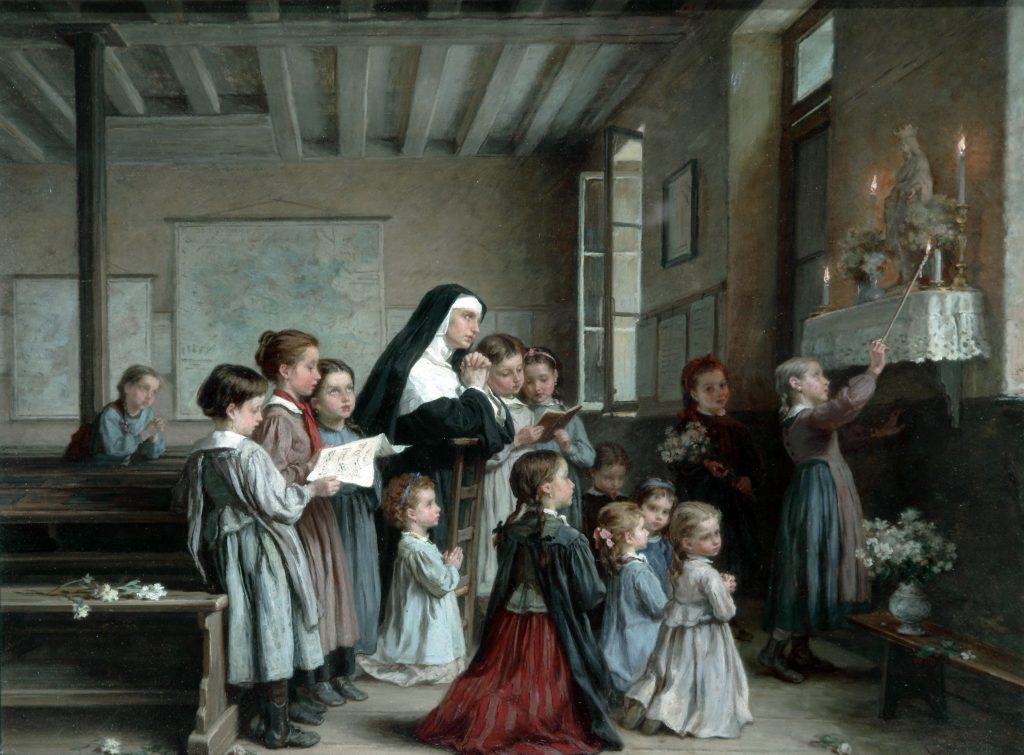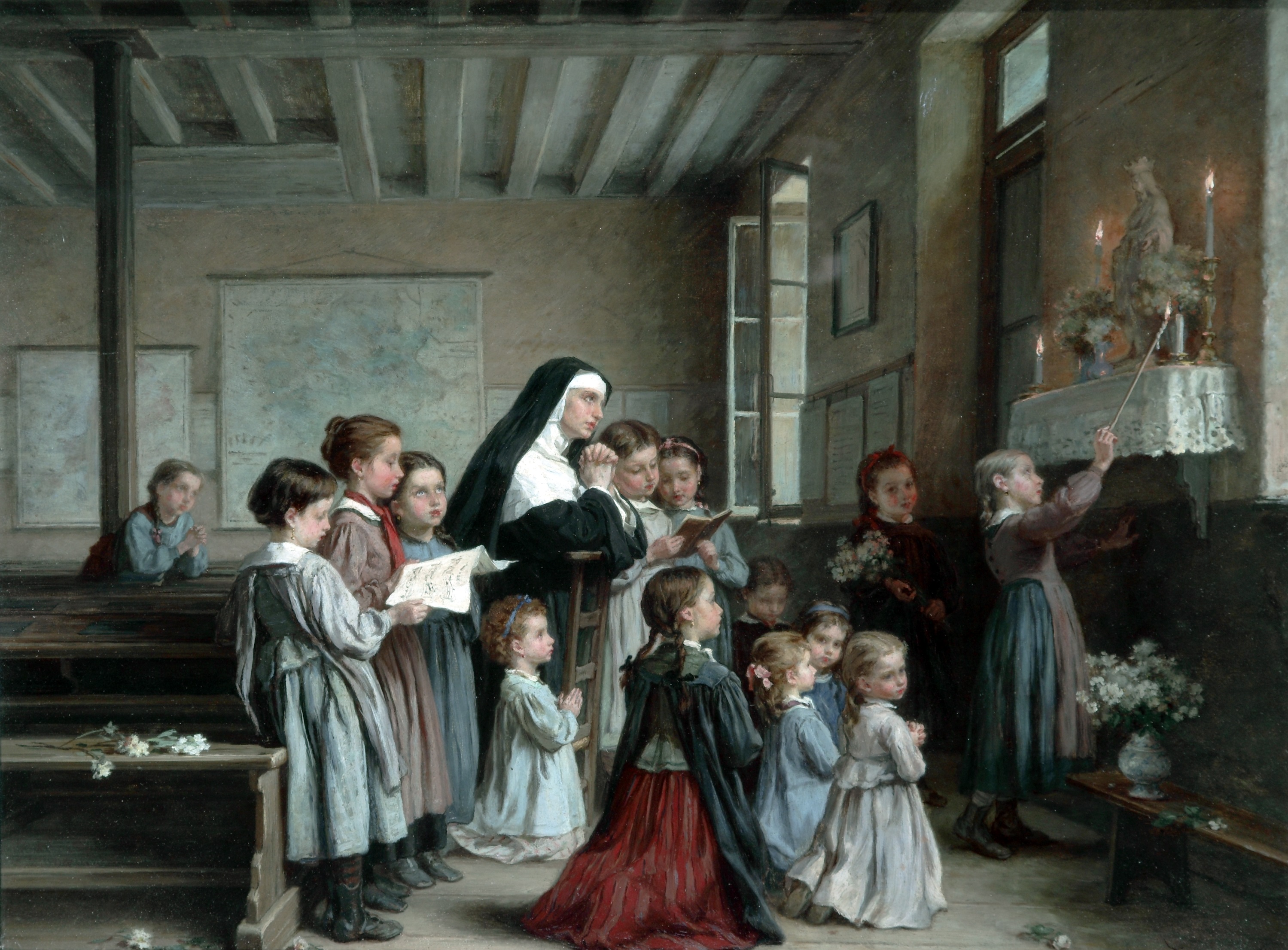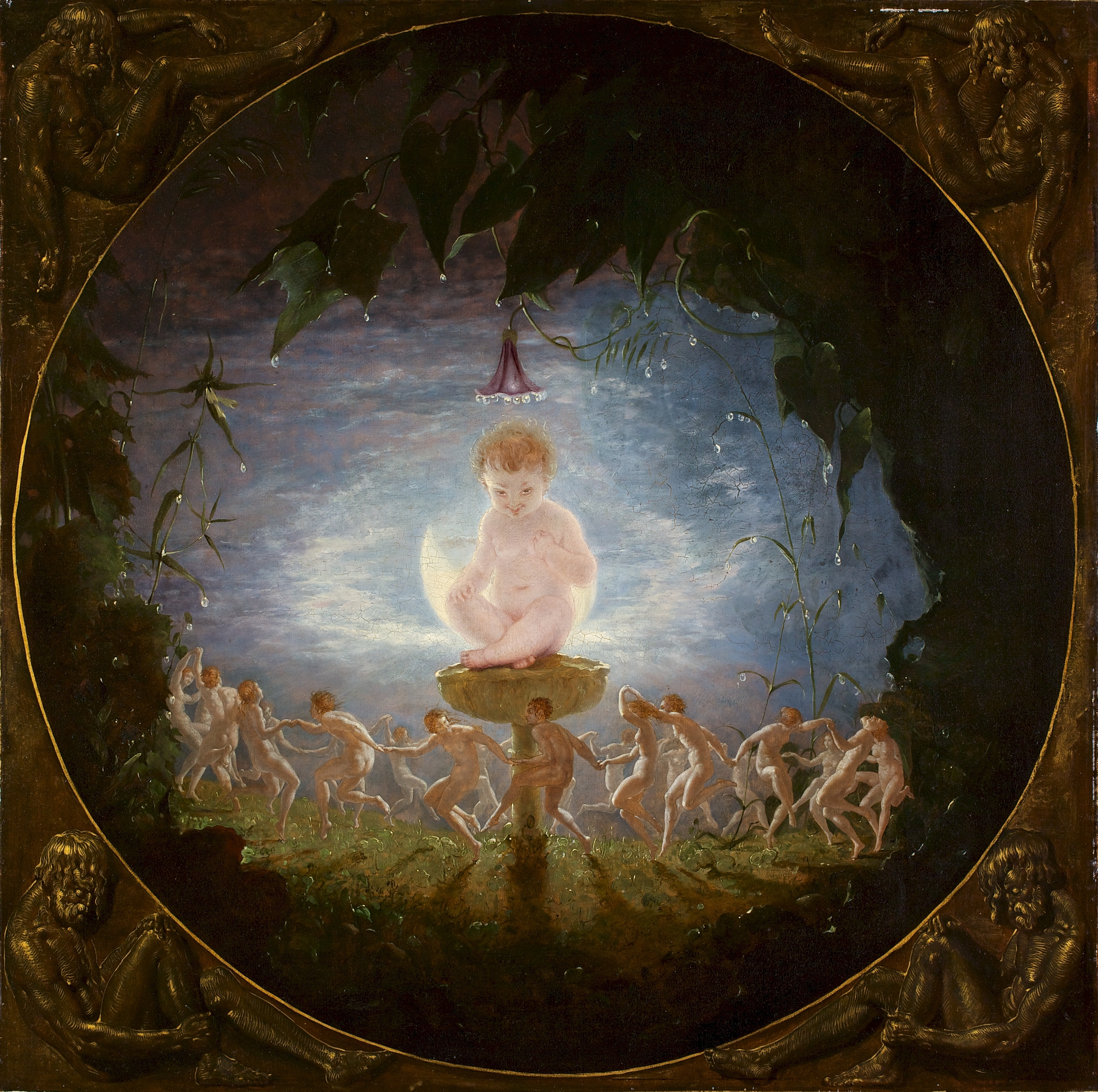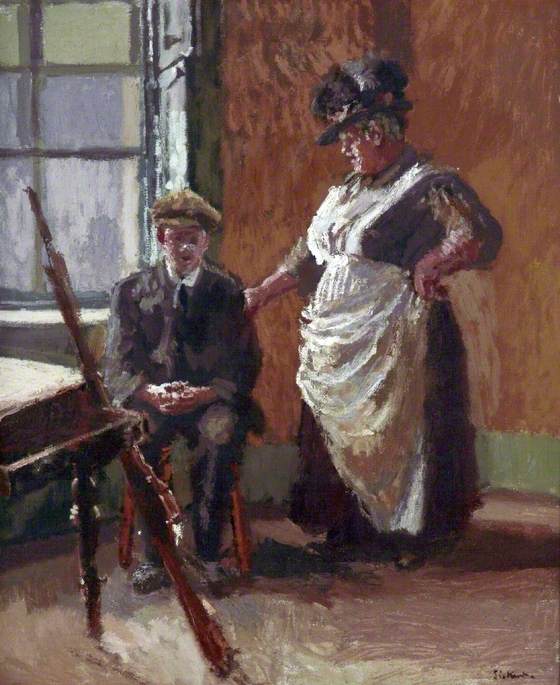The Atkinson, in partnership with The Arts Society Southport, invited anyone over 18 with links to the Sefton Borough to take part in our second Poetry and Creative Writing Competition, responding to artworks featured in The Story So Far exhibition at The Atkinson.
The exhibition looks at differing kinds of story-telling, from the illustration of literary and historical texts to coastal and rural genre as well as classical and domestic scenes. The exhibition also includes post-war and contemporary works of art, illustrating the galleries’ strategies for developing the narrative theme. Other themes represented in the exhibition are Faith and Doubt, and myths, dreams and memory.
The judges this year were writer Kate Conlan and Sue Dexter, Young Arts secretary and Community Outreach for Southport Arts Society.
The competition winners have now been announced! They will receive prizes donated by the Arts Society Southport and their entries will be incorporated to The Story So Far exhibition, as well as being displayed online.
Winners
1st Place Prose – Carol Whitehead
2nd Place Prose – Sue Belcher
3rd Place Prose – Emily Parr
1st Place Poetry – Pamela Armstrong
2nd Place Poetry – Phil McNulty
3rd Place Poetry – Bob Eccleston
Inspirations
- (INSPIRATION: Historical/Literary genre) The Royal Family of France in the Prison of The Temple, 1851, By Edward Matthew Ward (1816-1879). Harris Museum & Art Gallery Collection
- (INSPIRATION: Faith and Doubt) La Prière du Matin or Morning Prayer, c.1860, by André-Henri (1828–1906) (Oil on Canvas). The Atkinson.
- (INSPIRATION: Rural Genre / Seaside Genre) Bird Scaring – March, 1896, by George Clausen (1852 – 1944) (Oil on canvas). Harris Museum & Art Gallery & Library.
- (INSPIRATION: Myth, Fantasy and Dreams) Puck, c.1871, by Richard Dadd (1817 – 1886) (Oil on canvas). Harris Museum & Art Gallery & Library.
- (INSPIRATION: Modern Life) Sinn Féiners, by Walter Sickert RA (1860 – 1942) (Oil on Canvas). The Atkinson.
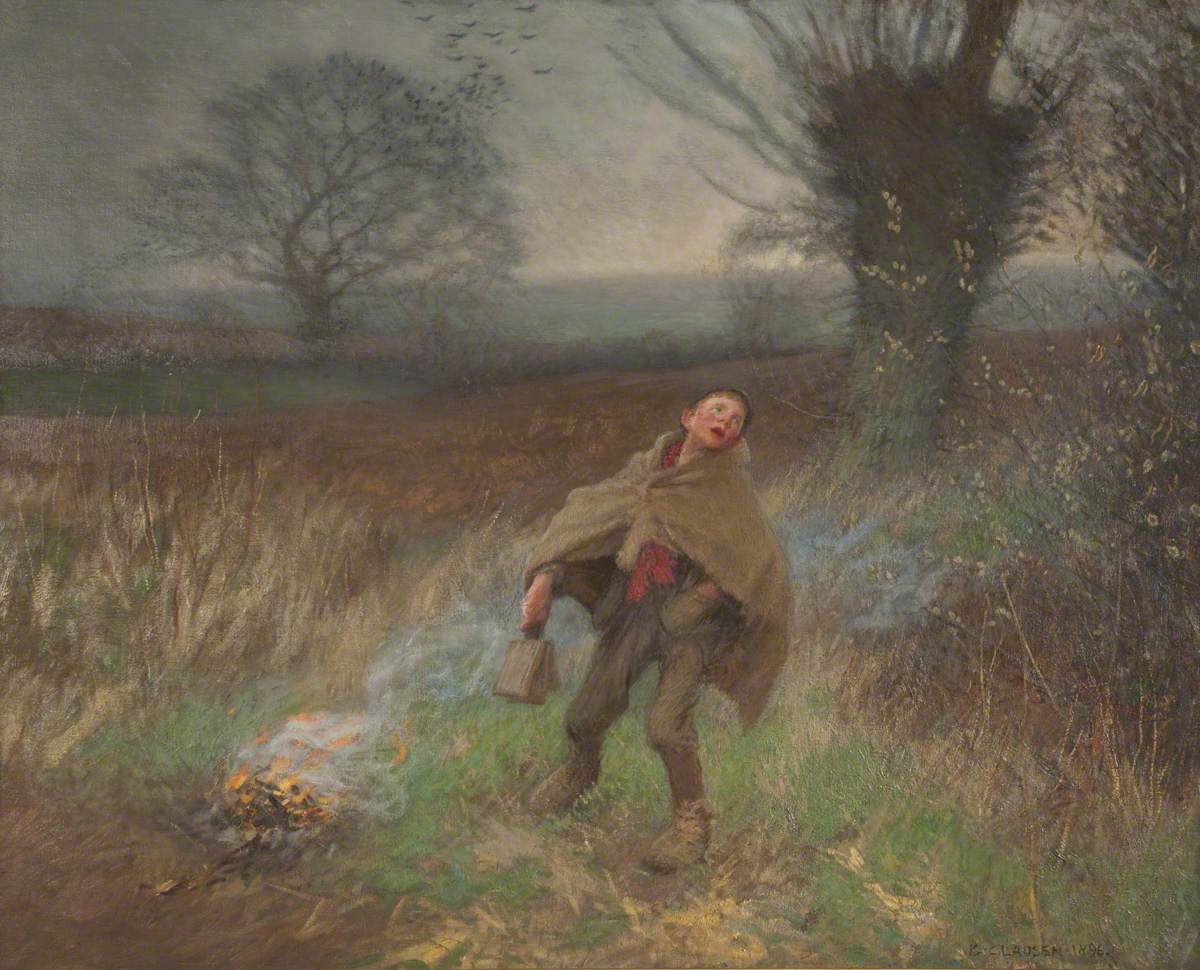
(INSPIRATION: Rural Genre / Seaside Genre) Bird Scaring – March, 1896, by George Clausen (1852 – 1944) (Oil on canvas). Harris Museum & Art Gallery & Library.
The Bird Scarer by Carol Whitehead
Inspiration: Rural Genre/ Seaside Genre
The winter wheat is sown, and the birds know all about it. A few small birds peck daintily at the earth, I let them feed, they don’t take much. After a minute or two, I’ll wave my arms and they’ll fly away. I can hear the wood pigeons cooing softly, they’ll be down next. I stamp my feet, they are numb with cold, have been all morning, I’m lucky to have boots even if they are too big for me and dead men’s shoes but I don’t care.
I’ve been in this field before, with brother Tom; sometimes, at midday, I’d take him a hunk of bread with some cheese. Usually, he is sitting under a hedge beside a small fire- like mine, but today he was off to town before daybreak. He told me he should be moving on, that scaring was a job for someone like me, that only kids should do it. I don’t care what he says, I don’t want his job, I’m just standing in for him today. Anyway, I’m at school ‘til I’m eleven.
I wish I’d brought my rag; my nose has been running all day, I swipe my sleeve across it, Tom says that’s what sleeves are for. No one’s brought me food. There was nothing left this morning, not for me, not for Ma, Tom took it all. Big sister, Lizzie, left last year, she’s gone into service. We hardly ever see her but when we do, she always brings a treat, like the pie. Ma said, ‘I hope you haven’t pinched that.’
Lizzie looked shocked, ‘No I haven’t, Miss Bradstock sent it’.
Ma coughed, closed her eyes, and lean back on her bed, ‘Tell her thank you’, her voice was harsh, weariness etched into her face, as it has been since our dad passed away. I close my eyes too, and think of that pie, my mouth waters, meat and potato in thick pastry and gravy running down my chin. My empty stomach groans.
Crows! Oh, those smart black birds, have dropped from the sky, flinging the soil over their shoulders in their frantic search, gobbling down the precious seed, I charge at them shaking my clapper, a right racket it makes, they look up, give me an evil stare, but take heed, and rise in a small dark cloud and fly away, crawing their harsh cry, mocking me and promising to be back.
There is an icy wind, thin and sharp, ripping through my clothes. I may as well be naked like the winter trees, we’re both cold and lonely, they offer me no shelter. I gather some more twigs and leaves for my fire, it gives out little heat, nowhere near enough but it’s something.
I tighten my muffler, a good red one Lizzie knitted for me. The sack over my shoulders, is the one I wrap round me at night when I lie on my pallet and I’m grateful for it, even if it is too thin and harbours a fair number of fleas and bedbugs. Sometimes, Tom eats the bugs; I’d have to be starving to do that, he says he is!
I think it’s mid-afternoon, my work ends when darkness falls, I can see the sun dipping towards the horizon. I’ve never been so bored, not much longer to go now. I wish I was at my school desk, my slate covered in chalk. I can read and write Ma is proud of me, says I could be a clerk when I leave school.
It’s dusk; I’m taking giant strides around the edge of the field, I shout to an empty world -’ My-Name-Is-Robert-Banks’, over and over again.
‘Hello Robert Banks,’ I jump, she has crept up behind me, it’s Jessie Carver, the farmer’s daughter, ‘What are you doing?’
‘Bird scarin’ ‘. I mumble.
‘I know that!’ Jessie is a few years older than me; she takes a small tart from the pocket in her pinny and hands it to me, I stuff it straight into my mouth, then remember to thank her, it’s so good but makes the hunger pangs even worse, I want ten tarts.
I hear them before I see them, a great clacking and calling – the geese! They come from the north, on their way back to their winter quarters, with any luck they will pass over. I have no luck. Like a grey blanket they settle on the field, busy beaks turning over the earth, seeds scooped up in an instant. I am among them, dashing here and there, my clapper going crazy. ‘Don’t ignore me!’ I shout. At last, they take fright at the din I’m making. They rise above the field, form their neat ‘V’ and fly away, honking into the distance.
‘Are you coming every day now?’ Jessie asks.
‘No, it’s Tom’s job, I’m still at school.’
‘Not Tom’s job anymore’, she says’, ‘Dad said he’s off to town to find a better living.’
‘No, he’s only gone for…’ Jessie shakes her head and the truth dawns on me, like Lizzie he has left us. We are on our own.
I start to cry, I feel childish in front of Jessie, but I can’t stop, the tears are pouring down my cheeks. My thoughts spin – I’ll get a few pence for my work today, but there’s rent and food and Ma’s too sick to do her sewing. ‘It’s the workhouse for us, then’ I swallow and swipe at my tears.
Jessie reaches for my hand, ‘Mother says you’re to come to the farm for supper and there’s a bed for you and tomorrow, after school, you can help me with the hens.’
But what about Ma?’
‘Don’t worry about your ma, our Alice is taking care of …of everything,’ her gaze is steady, her sad smile tells me all I need to know.
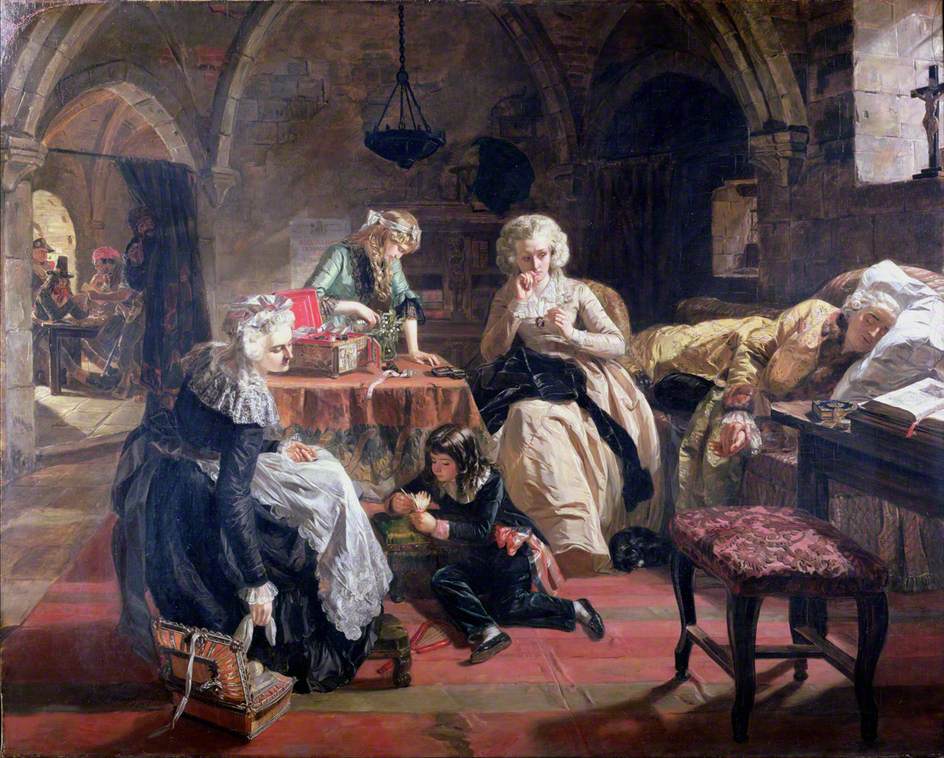
(INSPIRATION: Historical/Literary genre) The Royal Family of France in the Prison of The Temple, 1851, By Edward Matthew Ward (1816-1879). Harris Museum & Art Gallery Collection.
Inspiration: Historical Genre/ Literary Genre
Dans la Prison du Temple, 1792 by Pamela Armstrong
Dust collects in the corner of the cell.
Dust made from our skin shedding.
Dust collects everywhere.
It makes the Dauphin cough. Dust, the constant.
Dust that will remain here after us. Dust the unfearful.
Dust. Dust the ignorer, insensitive to the taunts
of the sans culottes who make Maman cry.
Dust. Bored. Dust. I watch it like a hobby.
Dust becomes my inner world.
Sunlight.
Sunlight. A beam of sunlight in the corner
catches dust stirred up by the swoosh of our dresses.
I watch specks of it floating in air currents.
Dust floating up and up past the crucifix
up, up to the draughty window and out.
Dust floating. Dust escaping floating in the breeze
if only we could with such ease.
I cling to my faith, pray and think this is my
God’s message of hope that we will be freed.
Postscript: Madame Royale Marie-Thérèse was the only royal prisoner of the Temple to survive
Judges
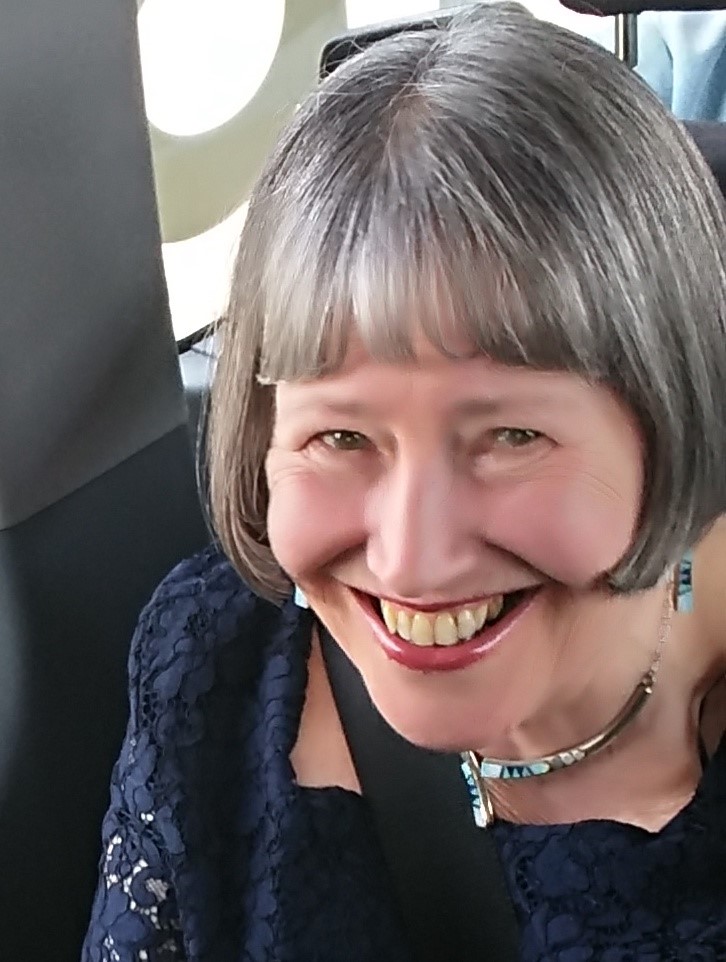 Kate Conlan
Kate Conlan
Over a career spanning more years than I care to remember, as Kathleen Conlon I’ve produced twelve novels and a further two as Kate North, published, respectively, by Collins, HarperCollins, Hodder& Stoughton and Gollancz. One of them: My Father’s House was adapted as a seven-part series by Granada Television and two others serialised on Radio 4 Woman’s Hour. More recently, I’ve concentrated on short stories and written around a hundred which have appeared, among others, in The Atlantic Review, Cosmopolitan, Woman’s Journal and Woman’s Weekly Fiction Special.
 Sue Dexter
Sue Dexter
Sue Dexter is the Young Arts secretary and Community Outreach for Southport Arts Society. Her background is in English teaching with a particular interest in poetry and creative writing. The Arts Society Southport brings people together through a shared curiosity for the arts. Their events provide welcoming places to hear expert lecturers share their specialist knowledge about the arts. Their members contribute to and preserve our artistic heritage through volunteering and grants. Their work creates a better, healthier and more connected society. theartssocietysouthport.org.uk
Posted on 25 September 2023 under Exhibition, General news




